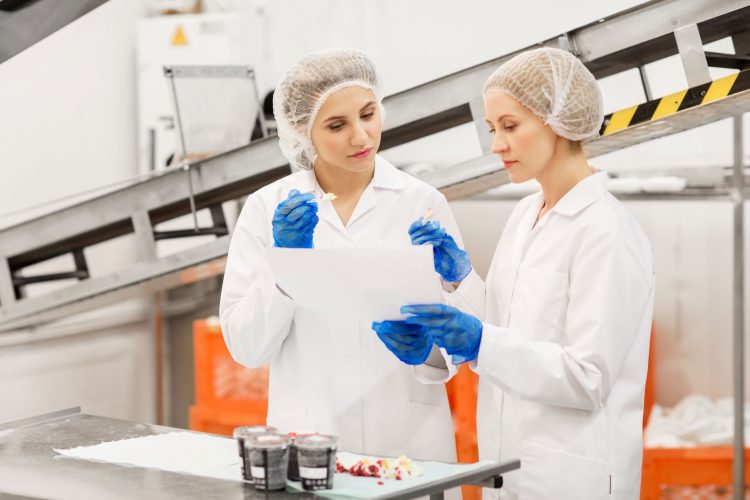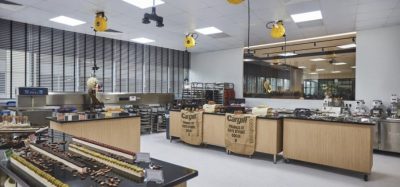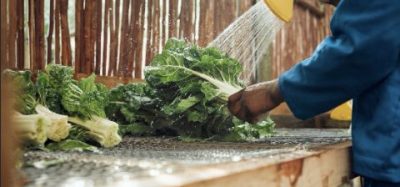Fuelling the future of the UK flavour industry
- Like
- Digg
- Del
- Tumblr
- VKontakte
- Buffer
- Love This
- Odnoklassniki
- Meneame
- Blogger
- Amazon
- Yahoo Mail
- Gmail
- AOL
- Newsvine
- HackerNews
- Evernote
- MySpace
- Mail.ru
- Viadeo
- Line
- Comments
- Yummly
- SMS
- Viber
- Telegram
- Subscribe
- Skype
- Facebook Messenger
- Kakao
- LiveJournal
- Yammer
- Edgar
- Fintel
- Mix
- Instapaper
- Copy Link
Posted: 18 December 2020 | The UK Flavour Association | No comments yet
The UK Flavour Association explains the dynamic roles available in the flavour sector, how companies can attract new talent and the future of the flavour sector.


Food and Drink is the UK’s biggest manufacturing sector, employing more than 430,000 people and generating a turnover of over £105 billion.1 This equates to 20 percent of total UK manufacturing, making it larger than automotive and aerospace combined.1 The UK flavour industry plays a significant role in delivering the food and drink products that consumers know and love. It is an exciting and dynamic industry to be a part of, but sourcing the right people and skills is crucial to help it evolve for continued success.
Roles within the flavour industry


There are varying sizes and types of flavour businesses that operate in the UK. Some are large and are part of huge global brands, however, the majority of flavour houses are small and medium sized enterprises (SMEs).
Within this context, the UK flavour industry offers a wide range of career prospects. At the initial stages of the creative process, innovation is a key function, with around 10 percent of industry turnover invested in research & development.2 Other important roles are that of purchasing and sourcing, where scouting out new flavour trends and raw ingredients is part of the everyday job. Flavourists and application chefs focus on creating and adapting flavourings and testing them in end products to determine how they will impact taste and sensory enjoyment of the final product. There are also interesting opportunities at the end of the flavour cycle, including roles in manufacturing, regulation, QA/QC, marketing and sales.
The skills required to start a career in flavours are not as specific as you might first think. Many flavour houses look for personal attributes, more than traditional skills, like a willingness to learn and grow with a business but, “mostly to love food, how it’s experienced and how it’s made, and what contribution you can see yourself making”, as Steve Morgan, Managing Director at Synergy Flavours, says.
“More than many other industries, the flavour industry is built on the passion and creativity of the individuals within it,” he adds.
Attracting new talent
Because the UK flavour industry is so dynamic, there is a broad spectrum of roles and opportunities that can appeal to a variety of people with varying skill sets – but how does the flavour industry attract new talent?
James Smith, Managing Director at Kalsec Europe, describes some of the schemes they have in place to encourage people to get into the flavour industry: “We have recently used apprentice schemes in the UK and globally we have interns for placements and also help fund PhD scientist research work.”
He also adds, “Helping employees grow new skills and enhance their careers always motivates people and helps recruitment as well.”


Janis Sinton, Managing Director of TasteTech, discusses how their links with local Universities have been beneficial: “We have an intern every year who comes from either Reading or Cardiff University from the food science department on a placement year. The first one we had has just come back to join us as a full-time employee, so that worked really well.”
Opportunities to further knowledge
Whether someone is just starting out their career in flavourings or are interested in furthering their experience in the industry, there are plenty of opportunities and training courses available throughout the UK. Both the University of Reading and the University of Nottingham offer Flavourist training courses, which help to provide postgraduates or flavour house employees with a deep understanding of flavours, their characteristics and their application.
Jane Parker, Associate Professor at the University of Reading, helps run a flavour training course. “This course provides a unique opportunity where delegates can spend three weeks learning how to create flavours guided by experts in the field,” he explains. “Many arrive with experience in flavour matching, but this course provides the tools and the confidence for them to develop their creativity – something that is essential for the development of flavourists of the future.”
Training opportunities are also offered by flavour houses themselves – including apprenticeships, graduate schemes, work experience and placements – where those who are new to the industry can learn on the job in a real-life setting. The apprenticeships and placements work especially well as students can learn how a flavour house works, gain a wide range of skills and insight into the various job functions, whilst studying for a degree.
Another establishment helping promote the interests of current and future flavourists is the British Society of Flavourists. Its membership comprises a variety of roles including flavourists and food technologists, but also students, and the society supports several higher education courses.
With all these provisions in place, the challenge is at what point do you target people. By the time they are at University, they have already started to establish a career path. Should education about the food and drink industry, and more specifically the flavour industry, start even earlier?
“Personally, I would target secondary schools as that ultimately drives what the Universities will offer. Aroma and flavours could be covered more in biology, chemistry, as well as food technology and with big changes in sustainable food for the future, this is a growth area,” comments Dr Gary Gray, Head of Technical Strategy at TasteTech.
Futureproofing flavour innovation
So, with both flavour houses and Universities offering different opportunities for people to enter the UK flavour industry, how can we get a career in flavours on the radar of school and college leavers?
Perhaps we can look to other countries, where there are other dedicated educational avenues like fragrance, cosmetics and flavours graduate training programs, that don’t currently exist formally in the UK. More engagement by the industry with younger students could take place via flavour classes in schools, as well as targeting young people more via social media, could have an impact.
Working collaboratively to ensure key skills and people are nurtured will help to ensure we continue to attract new talent to the industry.
Morgan concludes: “We have an opportunity as an industry to improve our messaging about the role we play, especially with the current trends making us more important than ever in the life cycle of tasty, nutritious and healthier foods.”
Advice on getting into the flavour industry
For students considering a career in flavours, look for industry placements that can allow you to gain a range of insight into the various types of flavour companies. It is important to forge links as soon as possible through work experience or day releases. Check around local flavour houses for opportunities,


Focus on building a broad base of food science knowledge, identify what interests and rewards you as soon as possible. The range of jobs within the industry is very diverse. If you want to be a Flavourist, be prepared to start in QC or an applications role, it’s a great place to get a good knowledge of materials and progress from there. If you’re naturally science-driven, there are plenty of entry routes from analysis of flavours, to application of chemistry or food technology, to creating new products.
References
- Food and Drink Federation, “Our Industry at a Glance,” 30 April 2020. [Online]. Available: https://www.fdf.org.uk/publicgeneral/industry-at-a-glance-april2020.pdf. [Accessed 1 December 2020]
- EFFA, “Flavour Ambassadors,” 25 November 2020. [Online]. Available: https://www.effa.eu/flavour-ambassadors/marketing-innovation-management. [Accessed 25 November 2020]
Author bio
The UK Flavour Association was formed in 1917 as the British Essence Manufacturers’ Association, changing names in 2012 to reflect the wider membership that now plays a role in the association. The association currently represents 40 UK and Ireland-based company members, it acts as the key technical representative forum for flavour and flavour related manufacturers. The UK Flavour Association has a mix of national and international companies and operates mainly through a technical committee that meets regularly to discuss and disseminate complex, largely EU sourced regulation.
Related topics
Flavours & colours, Quality analysis & quality control (QA/QC), Recruitment & workforce
Related organisations
British Society of Flavourists, Kalsec Europe, Synergy Flavours, TasteTech, The UK Flavour Association, University of Cambridge, University of Reading
Related people
Dr Gary Gray, James Smith, Jane Parker, Janis Sinton, Steve Morgan









